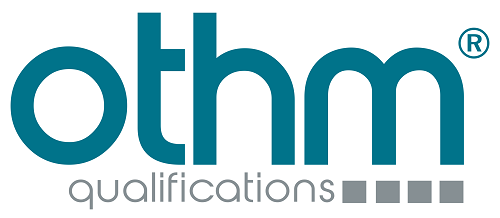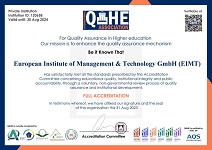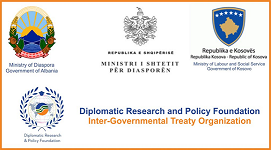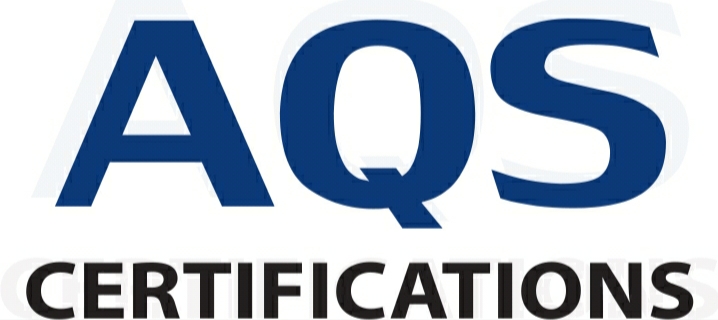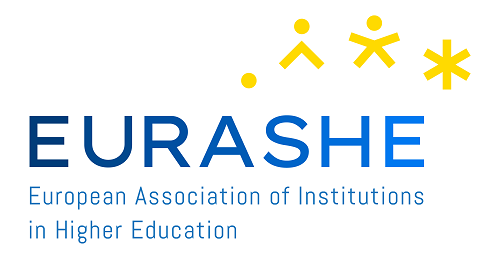Executive Master’s in Business Administration
- Home
- Executive Master’s in Business Administration
Accreditations
Accredited by major accrediting bodies.
Alumni Network
A strong network of 1000+ alumni worldwide.
Scholarships
Upto 30% of the total tuition fees available
International Students
From 20+ Countries
Programme Highlights

-
 12 Months online Program.
12 Months online Program. -
 Specially Designed for Working Professionals.
Specially Designed for Working Professionals. -
 Ample no. of specializations to choose from.
Ample no. of specializations to choose from. -
 International Networking Opportunities.
International Networking Opportunities. -
 Highly Qualified Industry Experienced Faculties.
Highly Qualified Industry Experienced Faculties. -
 Focused & Unique Curriculum.
Focused & Unique Curriculum. -
 Extended Weekend Lectures
Extended Weekend Lectures -
 Discover the latest business and industry trends.
Discover the latest business and industry trends.
Get FREE 1:1 Counselling

Executive Master’s in Business Administration (or 1 year MBA)
Executive-MBA will help you advance your career in the following ways:
- Learn to think more strategically and analytically, you'll improve your business and leadership abilities.
- Act with more conviction and persuasion.
- Create a strong network of business experts and long-lasting ties.
- Find more about the most recent business and industry trends.
- Learn how to think about business comprehensively and strategically.
- Provide a hands-on introduction to management theory.
- Incorporate inventive and imaginative thinking.
- Develop a collaborative mentality.
-
Executive Master’s in Business Administration
Our Executive MBA (Ex-MBA) program is designed to educate working executives, managers, entrepreneurs, and other business leaders by providing them with the most up-to-date executive leadership information. You will receive top-notch managerial training in business administration.
Executive Master’s in Business Administration
- Eligibility: Master's Degree
- Duration: 12 Months
- Enrollment: Being online - Throughout the Year
Important Information Regarding Executive MBA Program
Program Delivery



Professional Professors
General Admission Requirements:
Candidates are eligible for admission by satisfying the following admissions criteria:-
A bachelor’s / Undergraduate degree with a minimum of 3 years of working experience.
-
Submission and evaluation of graduate school applications including; undergraduate academic transcripts, ID or passport copy, and resume.
-
Applicants for the Ex-MBA program are exempted from an English exam provided they completed their schooling in English medium.
Application Go Through:
Applications are only accepted online. Once the application form is received, our team looks after the past performance and future potential and will contact you accordingly.
What is Next?
The Curriculum
Compulsory Programs
-
Globalization
This course focuses on and facilitates in-depth discussions about the impact of globalization on business and the analysis of the first economic aspects related to the expansion of globalization. The main purpose of this course is to acquaint students with the concepts, ideas and methods of globalization research.
-
Leadership
The aim of this course is to help students acquire and develop effective leadership skills within a team. Students will understand and compare different leadership styles, concepts, and techniques and practice leadership through classroom exercises.
-
International Laws & Ethics
This course will introduce students to the basic concepts and issues of international law, ethics and international law. This course will cover the main topics in this area, such as the origins of international law, the rights of states, international law and the use of force, and the relationship between international law and domestic law. It will also address specific issues such as international human rights law and international criminal law. In addition, this course will examine and discuss several international courts, as well as some treaties, decisions and other important international legal documents.
-
International Marketing Management
This course will provide you with the basic concepts and ideas of strategy, leadership, finance, as well as professional knowledge in marketing management, creativity and brand communication, and digital marketing.
-
Research Methodologies
At the end of the MBA program, you will be able to apply what you have learned in your business and create your own business project. You have to ask your own questions, decide which method to use and, through deep research, come to your own advice. A business plan summary, called a thesis, should present an original pitch, business case, or business plan that has been carefully researched from primary and/or secondary sources.
-
Wealth & investment Management
This course is designed to introduce students to the area of investing in the career of a private or professional investor. This course does not cover fees, which is an important part of corporate finance courses. Instead, it emphasizes the use of pricing theory in financial management. It requires:
1) Provide an overview of the company’s definitions related to financial markets and trading processes provide an understanding of historical trends and innovations in financial instruments and trading systems.
2) Give details of various financial instruments .
3) Give an overview of the use of financial concepts in financial management
4) Provide guidelines for financial management measures addressing key risk management issues -
Strategic Marketing & Social Media Planning
Marketing and social networking form an inseparable couple. Today’s digital world is just a world: but with new rules, codes, languages and powers. The country living in the world 2.0 is called a social channel. Being on Twitter, Instagram, Facebook, Linkedin and YouTube means opening up your little universe to infinite possibilities and changes. an effective way to obtain data of safety characteristics that can contribute to knowledge. This module aims to provide students with knowledge and skills that allow them to build their network of professional contacts to improve relationships, exchange and sales.
-
Global Macroeconomics
Topics covered include international trade, monetary theory, international finance, foreign exchange markets, balance of payments (and trade deficits), money flows, fiscal policy and government funding, international cooperation, financial crises and increase in the activity of international companies.
-
Competitive Strategy
This process aims to show that the decisions that affect the expansion of business are not clear or determined by the technology or the economy associated with globalization. This course focuses on Porter’s theory and SWOT analysis. A comparison is made between the differences between the main economic, financial and political factors that affect the international expansion of companies and only national factors. The system examines the internationalization of the company as a process of decision-making, working on countries, companies, institutions, companies and subsidiary levels of analysis. This course introduces students to the topic of strategy and helps them understand the overall impact of internal and external influences on business. The main objective of this course is to provide the student with a comprehensive understanding of the practice of strategic management and its real importance in today’s multinational companies.
-
Digital Economy Management
Constant innovation, disruptive technology, social and economic change. We are in the technological era, a unique period of numerical diffusion, which is comparable in the form and importance to the Geological zone where life exploded into the diversity of today. Knowing what’s special about this season is the first step to not falling for it. Installing it is next. Great opportunities for individuals, organizations and businesses. This course will help to understand the evolution of the digital economy and to get the tools to do well in such an environment.
Specialization Module Programs
Global Management & Leaderships
-
Managing and Leading in Different Countries
Taking into account the growing influence of culture and seismic changes in many parts of the world, this course over the years has covered 60 countries and all major regions of the world. The 21st century will be a critical time for Western operators in terms of strong and endless competition (especially from Asia) and trying to get a share of the large market of mechanical engineering. People will soon produce in India, China, Pakistan, Indonesia, Bangladesh etc.
-
Individual & Organizational Leadership Skills
In today’s global business world, successful leaders need a global perspective. This course takes the confusion out of leadership and is based on one of the most respected leadership books ever written that presents, through compelling stories, ongoing research. reveals that how leaders understand that leadership is a relationship. Discussions range from the most pressing organizational challenges facing leaders today to changes in how people work and what people expect from their jobs. Our goal is to create exceptional managers with exceptional leadership-focused career opportunities.
-
Managing Business Ethics
This course is designed to prepare students to have an original course. They must identify and resolve ethical issues, understand their own ethical standards and those of others, and promote good behavior in their organization. We prepare students for a wide range of careers in the business world through corporate careers. We examine how companies operate and how they should affect our individual and social lives, and we ask ourselves what role companies and their values (could) play in society. This course introduces the concept of social responsibility and examines its importance in the business practice of ethics, as well as the assessment of the role of corporate ethics in the environment and people in other countries.
Project Management
-
Project Management
This module focuses on developing the concepts necessary for successful international project management. Students engage in effective discussion where new cases stimulate discussion and debate, and new real-world vignettes show how to apply ideas in the workplace. Various tools that managers need to effectively manage operations in today’s business are explored. There are various important topics in management that will be covered in this.
-
New trends & Methodologies in Project Management
This courses enhances the skills of students to learn the necessary changes to complete a task. A report on the scope of “agile” at the end of each department clearly identifies when agile work has been done different from traditional work or places where it is highlighted. In many cases, this can be modified or improved in exchange for more traditional work. Through discussion of this human strengths text, students learn to use positive psychology to understand the unique abilities of individuals. Appendices explain each critical topic related to the project to better prepare students to effectively lead and manage a project. -
Project Risk Management
Projects fail because of risks that are discovered too late, are ignored or simply are not sought. This statement seems trivial at first glance, but it is not so obvious for many stakeholders. With effective risk management, you keep your project under control and eliminate 90% of all project problems before they occur. This course is designed to explore the most important methods and tools how to successfully apply risk management in projects in a practical and easy-to-use way. You will receive hands-on instructions and tips that you can immediately implement in your project. Identifying and analyzing uncertainties in areas such as resources, project scope, technology, leading the project and scheduling is the most important part of this book. All covered topics are crucial elements of a sound project management strategy and a good addition to Enterprise Risk Management.
Data Science
-
Python | R Programming & Machine Learning Model
Learn to represent and store data using Python data types and variables, and use conditionals and loops to control the flow of your programs. Learn how to program in R and how to use R for effective data analysis. Learn to create custom data analysis solutions for different industries and predictions with real-world examples.
-
Artificial Intelligence & Machine Learning
Learn to leverage the capabilities of deep learning tools to fix complex problems and unlock next-level results for modern business problems. Learn What machine learning is, how it is related to statistics and data analysis and uses computer algorithms to search for patterns in data.
-
DBMS & EDA (Exploring Data Analysis)
Learn SQL fundamentals such as JOINs, Aggregations, and Subqueries. Learn how to use SQL to answer complex business problems. Learn the tools you need to clean and validate data, visualize distributions and relationships between variables, and to use regression models to predict and explain.
Finance
-
Investing & Private Equity
This course provides an introduction to understanding and managing savings accounts. It examines the cost of investing, investor objectives, risk and return, sources of information, security analysis, and portfolio theory with a focus on equity investing. This course will also expose the student to the difference between public investment and private equity. Specifically, students should understand the basics of portfolio theory, the different types of equity investments, understand how the stock market works and how to buy securities, understand the factors that determine risk and return.
-
Mergers and Acquisitions
This course focuses on the valuation methods currently used on Wall Street: peer company analysis, pre-market analysis, free cash flow analysis, and buyout analysis. The purpose of this course is to cover the key aspects of the M&A business process, including corporate strategy, target selection/selection, negotiation/evaluation, and due diligence. We will focus our studies on current best practices in mergers and acquisitions, including tools, techniques and methods adopted by modern negotiators. This course will require the application of capital principles and research methods to real-world situations that may be encountered by senior management of large companies or those who provide such management advice in mergers and acquisitions. By the end of the course, the student will gain an appreciation of the role that mergers and acquisitions play in today’s corporate world, as well as creating ideas or connections and acquisitions that “make sense” for the company. -
Entrepreneurial Financial Management
In this course, students learn the financial side of business. These include writing a business plan and its essentials – finance, operations, marketing. In addition, students learn methods for creating and managing business ventures. Specific topics include new business planning, business development, startup investing, and marketing, management, and human resources specific to new businesses. Other areas related to finance are also studied, including service contracts, organizational structure, risk factors, other sources of finance and pricing. Students develop and develop new business ideas, business plans, and project contracts.
Marketing
-
Customer Relationship Management
The main objectives of this module are ➢ To understand the concepts and principles of CRM ➢ To appreciate the role and changing face of CRM as an IT enabled function, and ➢ To enable managing Customer Relationship. Main topics include are: CRM concepts, CRM in Marketing, Sales Force Automation, Analytical CRM, CRM Implementation etc.
-
Digital Marketing and Analytics
The MBA Digital Marketing course includes topics that familiarize students with the concepts of website design using WordPress CMS, email marketing, content creation and promotion, SEO, SEM, SMM, mobile marketing, geomarketing, YouTube video marketing, website data analysis , affiliate marketing, and blogging. Upon successful completion, MBA graduates will have many career options in digital marketing, content creation and marketing, email marketing, social media marketing, affiliate marketing, and business marketing. influencer, PPC advertising and copywriting.
-
Consumer Behavior
Consumer behaviour is the study of how individual customers, groups or organisations select, buy, use, and dispose ideas, goods, and services to satisfy their needs and wants. It refers to the actions of the consumers in the marketplace and the underlying motives for those actions. Main topics includes Understanding Consumer Behavior, Environmental Influences on Consumer Behavior, Consumer as an Individual, Consumer Decision Making Processes, Consumerism and Ethics etc.
Cyber Security
-
Fundamentals of Cyber Security & Text Processing
The cybersecurity fundamentals course trains you in developing and implementing security solutions for small and large organizations, protecting systems and network infrastructures. This chapter discusses simple and advanced text processing and text analysis: the basic processing considers format-checking based on pattern identification; the advanced techniques consider named entity recognition, concept identification based on synonyms and hyponyms, and information retrieval concepts.
-
Introduction to Linux, Enumeration & Sniffing
Important topics includes areWhat is Linux, Why Linux, Difference Between Linux and Windows, Basic commands, OS installation, LVM, Linux boot process, Net BIOS Enumeration Net BIOS, Enumeration Concepts, Working of SNMP, Enumeration tools, VoIP Enumeration, RPC Enumeration, SMTP and DNS Enumeration, Sniffing Concepts, MAC attacks DHCP attacks ARP poisoning Spoofing attacks etc.
-
Ethical Hacking, System Hacking & Cloud Computing
Important topics includes areHacking Concepts, What is hacking?, Who is a hacker?, Hacker classes, Hacking phases, Ethical Hacking Concepts, What is Ethical Hacking?, Why is Ethical Hacking necessary?, Scope and limitation sof Ethical Hacking, System Hacking Concepts, CEH Hacking Methodology (CHM), System hacking goals, Cracking Passwords, Password cracking, Types of password attacks, Cloud deployment models, NIST cloud deployment reference architecture, Cloud computing benefits, Virtualization etc.
Human Resource
-
Industrial Relations and Employment Laws
This course provides students with an understanding of the importance of employee-employer relations in the organization while focusing on labor disputes, labor welfare, public safety, discipline and discipline, teams, management complaints and issues of collective bargaining with the government. Maintenance procedures included. and conflict resolution. This study focuses on Indian labor laws to develop a definition of values in industrial relations.
-
Performance and Compensation Management
Every organization wants to achieve the best level and make the best use of its human resources, regardless of the size, type or type of work of the organization. Therefore, managing the performance of human activities (individuals, teams, units) of an organization is very important through the planning and operations process. This course is designed to provide an in-depth understanding of the processes involved in performance management, the challenges and skills necessary to achieve high performance. Managing the wages and benefits of team members is a specialized role performed by HRM professionals. Effective reward management in an organization is considered very important as it covers an important part of the entire human resources management process. This course is designed to cover the basics needed to design and implement an effective reward system in any organization.
-
Leadership and Team Management
This course aims to provide a framework for students to understand the importance of leadership and management of organizations in various organizations, to develop an understanding of interpersonal processes and organizational change, to provide a conceptual understanding of leadership and organizational processes. are different and provide an understanding of the factors that affect team work and team leadership. It tries to consider the role of the leader in the development of the company.
Operations
-
Supply Chain Design and Sourcing
This course aims to help students learn the basic concepts, tools, and technologies related to (a) supply chain design; and (b) Strategic Sourcing and Advanced Sourcing Management, understanding competitive strategy and supply chain management. It also helps them understand the purchasing process, the sourcing process and the portfolio approach to sourcing, and the sourcing network structure.
-
Logistics Management
This course helps students to learn the main concepts, tools, and technologies related to logistics management, understand how logistics is managed in global supply chains and what methods are used based on the supply chain, to understand warehousing, management and travel in detail in thought and practice related to packaging. -
Advanced Supply Chain Management
This course helps students to understand the concepts related to business enterprise strategy for SCM, for example, rapid response, effective customer response, supplier management products, distribution integration and cooperation strategy, forecasting and replenishment, supply risk management and business management continues. It also helps them understand how advanced planning and scheduling (APS) systems work and support issues in supply chain management, as well as cost and revenue management in the supply chain..
Accreditations
Committed to Quality, Dedicated to You.
Frequently Asked Questions
-
How much time should I spend on coursework each week?
Expect approximately 16 hours of work per week. This may include lecture videos, readings, discussions and assessments.
-
Can I reapply to the EMBA program if I wasn’t previously accepted?
Yes. Reapplication procedures are streamlined if you reapply within one application cycle of your originally submitted application (In most cases 1 month). If you reapply after that time, you must submit a completely new application and supporting documents.
-
Will my degree be the same as if I attended the Full-time MBA Program?
Yes, there is only one Master of Business Administration degree granted by European Institute of Management & Technology.
-
Can I choose a major for my Executive MBA?
Yes you can. Please go through curriculum & sturcutre part to see specialzations offered in ExMBA program.
-
Is there a maximum age limit for someone who wishes to apply?
There is no maximum age limit to apply.
-
What’s the difference between the full-time MBA and the Executive MBA?
While both the MBA and the Executive MBA cover similar material, and both award the same MBA degree, there are some fundamental differences. The Executive MBA is designed for managers and executives who already have substantial professional experience behind them. They want to remain in full-time employment to continue their careers whilst studying for their degree. Full-time MBA students take part in a number of practical exercises, such as work shadowing and placements, making it more suitable for those at an earlier stage in their career.
-
Why should I choose an Executive MBA?
The ExMBA may be for you if you want to complete an MBA without interrupting your career. As an ExMBA participant you remain in full-time work while you study, simultaneously advancing your career and your professional and personal development. ExMBA students are able to immediately apply knowledge gained through the programme back in the workplace, which fast-tracks your learning process
-
Do I need an undergraduate business degree or business classes to be admitted?
We welcome applications from a wide variety of backgrounds and do not look for or favour specific undergraduate majors. Business classes are not required before entering the MBA Program.







